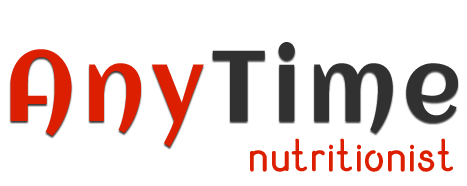HR is one of the most exciting and dynamic fields to work in. Working as an HR professional provides you with a great opportunity to make a positive impact on your company and its employees. However, it can also be quite challenging. This is especially true if you’re thinking about working as HR in Singapore.
Working as HR isn’t easy anywhere, but there are some unique challenges when it comes to this role in Singapore. The tight labor market, high cost of living, and fierce competition for talent can all make working as HR challenging here. But the same can be said about any other country. Let’s take a closer look at why that is and what makes working as Human Resources in Singapore so tricky.
Step 1:Know The Tasks And Responsibilities Of An HR Manager.
The HR manager is responsible for recruiting, training, and managing employees. The HR manager is also responsible for maintaining employee records and ensuring that the company complies with labor regulations. HR managers can work for any type of organization. The human resource department is charged with recruiting, hiring, and training employees as well as maintaining employee records and compliance with labor regulations. HR managers can work for many types of organizations such as corporations, nonprofits, or government agencies.HR managers need to be aware of the latest labor laws and regulations in each state where they work. They also need to know how to recruit new employees, conduct interviews, and conduct exit interviews. They are also expected to be able to manage compensation programs for their employees.HR managers are responsible for a company’s people and workplace. They ensure that the company is compliant with labor laws and regulations, they provide support to employees, and they manage the onboarding process. for new hires.HR managers work with many different departments, including accounting and finance, operations, IT, marketing and communications, human resources team members, creative teams such as copywriting and design, strategic planning team members like CEOs and CFOs. , and recruiting team members. The HR department develops, policies, and manages the company’s policies. They also create and enforce employee handbooks, conduct staff training courses to keep employees up to date on company policies, and conduct performance reviews for staff members. They generally manage compensation plans, employee leave programs such as family care ridesharing periods or part -time leave, and provide employee benefits such as health care, retirement plans, and tuition assistance.
Step 2:Define The Job Requirements.
The job requirements for HR jobs in Singapore typically include experience in human resource management, business development, recruitment, and training. .Many HR managers work as HR directors or HR generalists in a variety of companies. They typically hold at least a bachelor’s degree in Human Resources, Business Administration, or a related field and related experience. HR managers typically manage the human resources department of their company; they are often responsible for recruiting, performance management, recruitment plans, training and development programs , benefits, payroll and labor relations. HR managers typically manage the human resources department of their company; they are often responsible for recruiting, performance management, recruitment plans, training and development programs, benefits, payroll and labor relations. The job requirements for an hr executive vary depending on the position and what is required by the company. However, most jobs require some combination of these skills: strategic thinking, time management, negotiation skills, and leadership skills. .Some common job requirements for an hr executive are:-interviewing and hiring candidates for open positions-receiving employee vacations, absences, and sickness-managing the office environment (e.g., facilities, furniture)-establishing office policies that govern interactions between employees and customers or other external groups of people-overseeing the performance of employees-working with future and current employees to determine career paths, including acting as a mentor -promoting a positive and productive work environment -learning about the company values and mission. The job requirements for an hr executive vary depending on the position and what is required by the company. However, most jobs require some combination of these skills: strategic thinking, time management, negotiation skills, and leadership skills.
Step 3:Create A Job Posting And Recruitment Strategy.
The most important part of a recruitment strategy is the job posting. The job posting should be clear, concise, and have the necessary information for interested candidates. Job postings should also include any requirements that candidates need to meet in order for them to be considered for the position. Lastly, it’s important to create a strong employer brand so that potential employees know who they are working with and why they would want to work there. .Setting reasonable expectations for your job posting is important to prevent candidates from getting discouraged. Job postings should also be clear about the benefits and perks of working at your company. For example, it’s a good idea to post information about the company culture and its values, employees’ hours of work, the type of work that will be required for this position , and what the company does. In addition, it’s a good idea to post information about your company in relevant social media channels. .Your website is your digital front, so it’s important to make it look professional and easy-to-navigate. It should be optimized for search engines (Google) and mobile devices, with a clear focus on what your company does. If you’re able to post relevant content in social media channels like Reddit or Instagram, that will help boost your business. It’s important to have a presence on social media, and to be active on that platform. If you’re unable to do this yourself, make sure you hire an experienced marketing team or agency that can create content for social media channels.
Step 4:Interview And Screen Candidates.
Interviewing and screening candidates is one of the biggest challenges for employers. With the help of AI tools, companies can automate this process and save time, money and resources. AI can automate the full cycle of recruiting: searching, screening, interviewing, and all decisions leading to hiring. AI can also be used to automate routine recruitment processes such as searching for job openings and sourcing candidates. By using AI tools that understand language and human factors, recruiters are able to make better decisions on who will be a good fit for each position. AI tools can also help to narrow down which applicants will be the best fit for each position by using machine learning.AI has been recognized as an important tool in recruiting, but it is still in its early stages of development and should not be used without a human counterpart. The quality of results that AI provides can vary widely based on factors such as the dataset used during training and the data used to predict outcomes. Companies should evaluate AI tools against other application development techniques before deciding which one is best for their work force. The use of predictive analytics in hiring is a growing trend among companies as it can help reduce recruiting costs and increase hiring accuracy.AI has been recognized as an important tool in recruiting, for a number of years and is used by almost every company.




